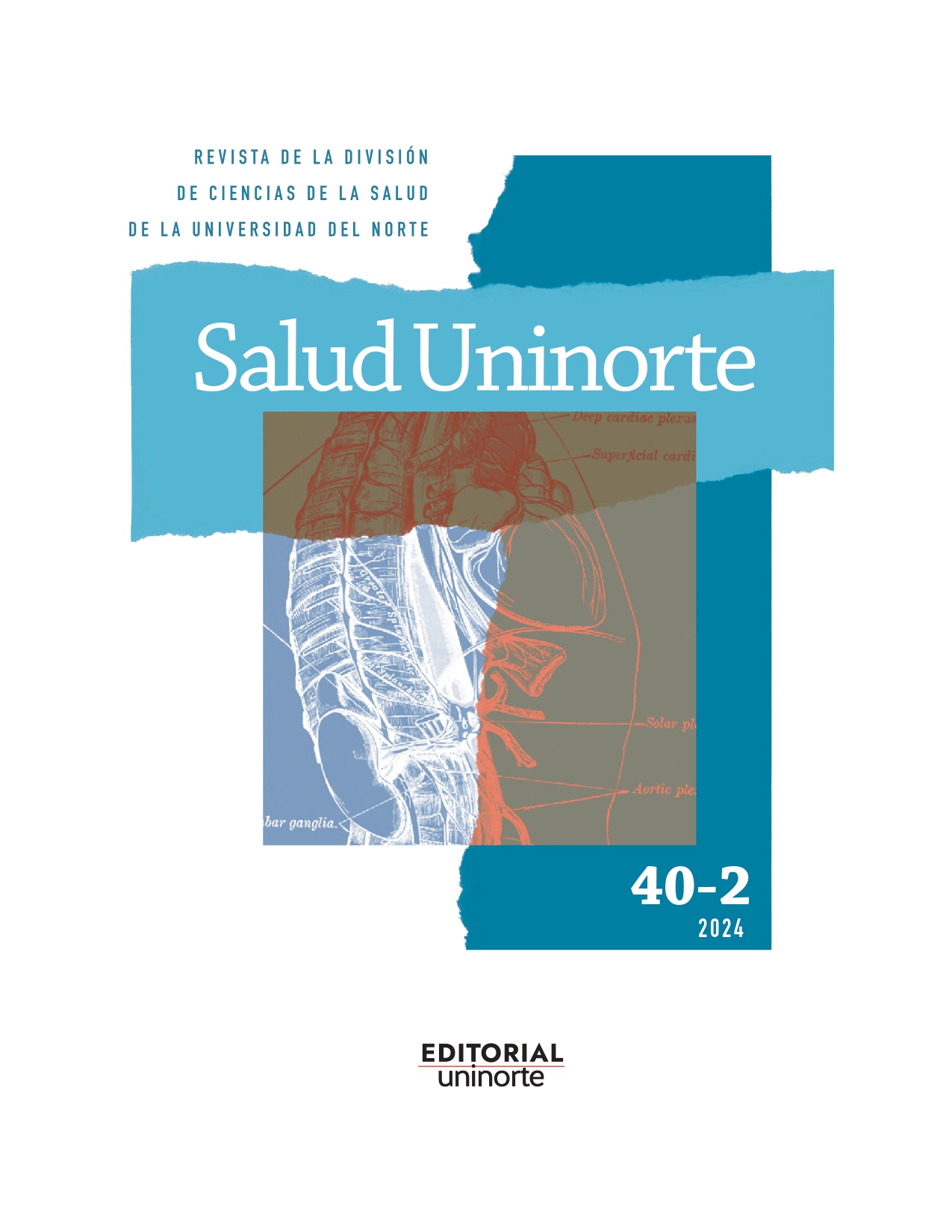Burnout and alcohol and cannabis consumption in health workers. Post-Covid-19 in Mexico
DOI:
https://doi.org/10.14482/sun.40.02.258.458Keywords:
Burnout Syndrome, Alcohol, Marijuana, Health Workers, COVID-19Abstract
Introduction: The Covid-19 pandemic brought many challenges in the mental health of health professionals where Burnout Syndrome (BS) was one of the most prevalent conditions in health workers. Likewise, during this period, an increase in the consumption of alcohol and/or cannabis could be observed to face the difficulties caused by the pandemic.
Objective: To know the prevalence of SB and alcohol and cannabis consumption and the relationship between SB and types of alcohol consumption after COVID-19 in health workers.
Materials and methods: The design of the present study was descriptive, correlational. The sample was made up of 84 health workers chosen by convenience sampling. The data analysis was carried out through proportions, 95% Confidence Intervals, Pearson's Chi2 and Spearman classification.
Results: It was found that the health workers presented moderately high levels of Burnout Syndrome, the worker who worked in the Covid-19 area, higher percentages were present in the SB categories, 31% presented a high level of emotional exhaustion, 20.2 % a high level of depersonalization and 25 % a low level of personal fulfillment. Regarding the use of psychoactive substances, no significant differences were found either, although of the workers who were in the Covid-19 area, 64.3 % reported consuming alcohol and 33.3 % cannabis. Regarding the type of alcohol consumption, it was found that 36.9 % have sensible consumption, 26. % have dependent consumption and 36.9 % have harmful consumption. Likewise, the type of harmful alcohol consumption was significantly correlated with the level of emotional exhaustion (p > .05).
Conclusions: which indicates that workers who have greater emotional exhaustion also have a type of harmful alcohol consumption.
Published
How to Cite
Issue
Section
License
(COPIE Y PEGUE EL SIGUIENTE TEXTO EN UN ARCHIVO TIPO WORD CON TODOS LOS DATOS Y FIRMAS DE LOS AUTORES, ANEXE AL PRESENTE ENVIO JUNTO CON LOS DEMAS DOCUMENTOS)
AUTORIZACIÓN PARA REPRODUCCIÓN, USO, PUBLICACIÓN Y DIVULGACIÓN DE UNA OBRA LITERARIA, ARTISTICA O CIENTIFICA
NOMBRE DE AUTOR y/o AUTORES de la obra y/o artículo, mayor de edad, vecino de la ciudad de , identificado con cédula de ciudadanía/ pasaporte No. , expedida en , en uso de sus facultades físicas y mentales, parte que en adelante se denominará el AUTOR, suscribe la siguiente autorización con el fin de que se realice la reproducción, uso , comunicación y publicación de una obra, en los siguientes términos:
1. Que, independientemente de las reglamentaciones legales existentes en razón a la vinculación de las partes de este contrato, y cualquier clase de presunción legal existente, las partes acuerdan que el AUTOR autoriza de manera pura y simple a La UNIVERSIDAD DEL NORTE , con el fin de que se utilice el material denominado en la Revista
2. Que dicha autorización se hace con carácter exclusivo y recaerá en especial sobre los derechos de reproducción de la obra, por cualquier medio conocido o por conocerse, comunicación pública de la obra, a cualquier titulo y aun por fuera del ámbito académico, distribución y comercialización de la obra, directamente o con terceras personas, con fines comerciales o netamente educativos, transformación de la obra, a través del cambio de soporte físico, digitalización, traducciones, adaptaciones o cualquier otra forma de generar obras derivadas. No obstante lo anterior, la enunciación de las autorizaciones es meramente enunciativa y no descartan nuevas formas de explotación económica y editorial no descritas en este contrato por parte del AUTOR del artículo, a modo individual.
3. Declara que el artículo es original y que es de su creación exclusiva, no existiendo impedimento de ninguna naturaleza para la autorización que está haciendo, respondiendo además por cualquier acción de reivindicación, plagio u otra clase de reclamación que al respecto pudiera sobrevenir.
4. Que dicha autorización se hace a título gratuito.
5. Los derechos morales de autor sobre el artículo corresponden exclusivamente al AUTOR y en tal virtud, la UNIVERIDAD se obliga a reconocerlos expresamente y a respetarlos de manera rigurosa.
EL AUTOR













